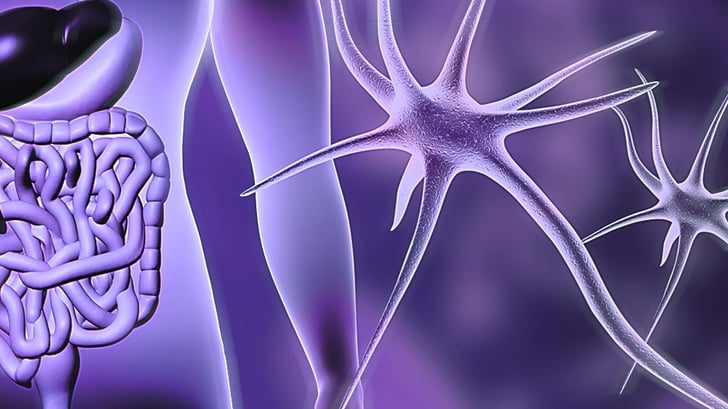Heads or tails? It's the same coin, and when treating neurogenic bladder and bowel, it's the patient that is the unifying focus.

The bladder and bowel are two indivisible parts of the problem. We talked to Anton Emmanuel and Anne P Cameron, experts on pelvic health, and we found some surprising facts about how they are related. For a successful treatment of patients with both neurogenic bladder and bowel, you at least need two craftsmen: a plumber and an electrician.
Anne P Cameron (Associate Professor of Urology at University of Michigan) knows all about the pipes, and Anton Emmanuel (Senior Lecturer in Neuro-Gastroenterology at University College London) works with power lines. But both are highly interested in each other’s fields.
"Both teams involved in bladder treatment and bowel treatment respectively need to understand the other's management planning. You don’t need to be an expert, but at least understand the basic principles," Anne P Cameron says.
Anton Emmanuel explains that whilst the specialties seldom meet in practice – except from in specialist centers for people with Spinal Cord Injury or other neurological diagnoses – this should be the aspiration for all units seeing such patients.
"Doctors and nurses are trained and specialized around regions of anatomy, rather than around diagnosis. It’s very unusual to specialize in both disciplines," Anton explains. "But it is changing. In terms of neuro rehabilitation we start to include bladder, bowel and also sexual dysfunction under the same umbrella, moving towards a more patient centered care."
And both of these experts are convinced that there are connections well worth considering in the treatment of neurogenic bladder and bowel patients.
"In a study with neurogenic patients we saw that people with high Spinal Cord Injuries or Spina Bifida had the worst bladder and bowel function. It’s rare to find someone with a terrible bladder who's bowel works fantastic. Usually both are severely affected or mildly affected," Anne P Cameron says.
Anton Emmanuel gives an another example of research that supports the connection.
We could see that when bowel function is managed in neurogenic patients, we could reduce the frequency of Urinary Tract Infections (UTIs) caused by bacteria from the bowel in both women and men.
Both specialists call for a more holistic view on bladder and bowel dysfunction, an approach that has been used for a long time in pediatric care.
"It’s almost universal that children who have a bowel holding pattern often have a bladder that doesn’t work well. Many develop UTIs as a result of being constantly constipated – it’s called Dysfunctional Elimination," Anne P Cameron explains. "It is also known that if they get a bowel program, their bladder most often improves significally."
Also in terms of treatment, the areas seem to be connected.
"I practice Sacral Neuromodulation therapy. It’s exactly the same procedure, done exactly the same way for fecal incontinence as for urinary incontinence. It fixes both. It was designed for bladder care, but as a side effect it took away the fecal incontinence. Now it is an approved therapy for both," Anne P Cameron says.
But why is it so important to have a more holistic perspective? Anton Emmanuel can see a lot of positives in taking this approach.
"For the patient the toilet process is one process. It’s about voiding in a comfortable way."
"There is also a social aspect of bladder and bowel care. If the bladder and bowel works, it makes you comfortable in leaving your house, to go to your job and to have intimate relationships."
In a wider perspective there is a health economy win in treating these patients in a holistic, more effective manner. When people return to a better function they will also return to their jobs and contribute to society. But Anton Emmanuel is also talking about the satisfaction as a doctor when you are able to help people.
"As a doctor you can assess patients with more dignity. Since there is a lot of embarrassment involved these patients need to talk to someone who understands their whole situation. You can do a better assessment and give a better service when you have knowledge in both."
And now back to that coin…
"Treating someone’s bladder doesn’t make their bowel better, and treating their bowel doesn’t make their bladder better, but treating them both as a whole does treat the person," Anne finishes.
"We need to see things from different perspectives and learn from each other. Today we need one expert for each side of the coin but in the future I want to see the same people dealing with it as a whole."
Download the Scientific Review: Patient Centered Care.




